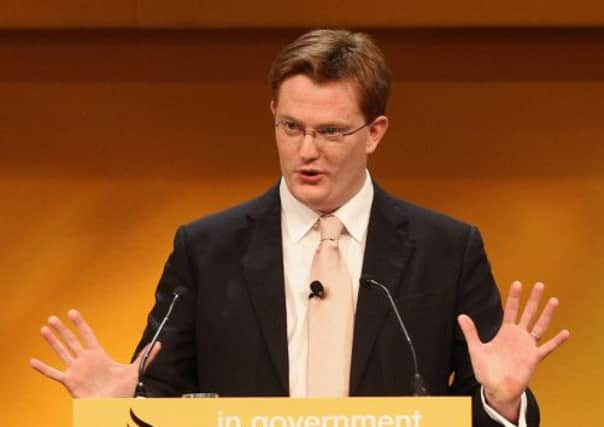Scottish Independence: UK ‘right not to negotiate’


Mr Alexander responded to criticism from a committee of lords that voters are being left in the dark about key aspects of the debate.
In his formal response to the House of Lords Economic Affairs Committee, due to be lodged today, the Lib Dem politician is expected to say the Government is “not making plans for Scottish separation”.
Advertisement
Hide AdAdvertisement
Hide AdHe is expected to add: “This is not complacency but rather based on a strong belief that the UK works, and works well. Scotland contributes to, and benefits from being part of the UK.”
Faults
Ruling out pre-negotiation, he will write: “My ministerial colleagues and I cannot, and should not, put the needs of one part of the UK over the others. We are the Government of the entire United Kingdom, not the Government of England, Wales and Northern Ireland.
“Furthermore the Scottish Government does not have a mandate to negotiate the terms of Scottish independence unless and until they obtain one in the referendum.”
The Lords report, published in April, found fault with the British and Scottish governments, suggesting they are failing to be open with the electorate.
However, both administrations have since published economic papers in an attempt to clarify issues before the referendum in September next year.
In the report, committee chairman Lord MacGregor said both sides should indicate the red lines of their negotiating stance on them before the referendum so that voters can make an informed choice.
Critical
“We do not take a position on whether voters should vote yes or no on September 18 2014 but they deserve to cast their vote based on a proper understanding of the possible economic impact,” the peer argued.
“At present they do not have the information to do so.”
The committee was particularly critical of Scottish Government policy for currency in the event of independence.
Advertisement
Hide AdAdvertisement
Hide AdThe SNP’s ambition to have some influence over the Bank of England was dismissed as “entirely fanciful”.
Finance Secretary John Swinney favours keeping sterling in monetary union with the rest of the UK, using the Bank of England as lender of last resort.
But the peers insist it would be “unacceptable” for the monetary policy committee of the bank to have members representing the interests of a separate country. They also raised concerns about the role of lender of last resort.